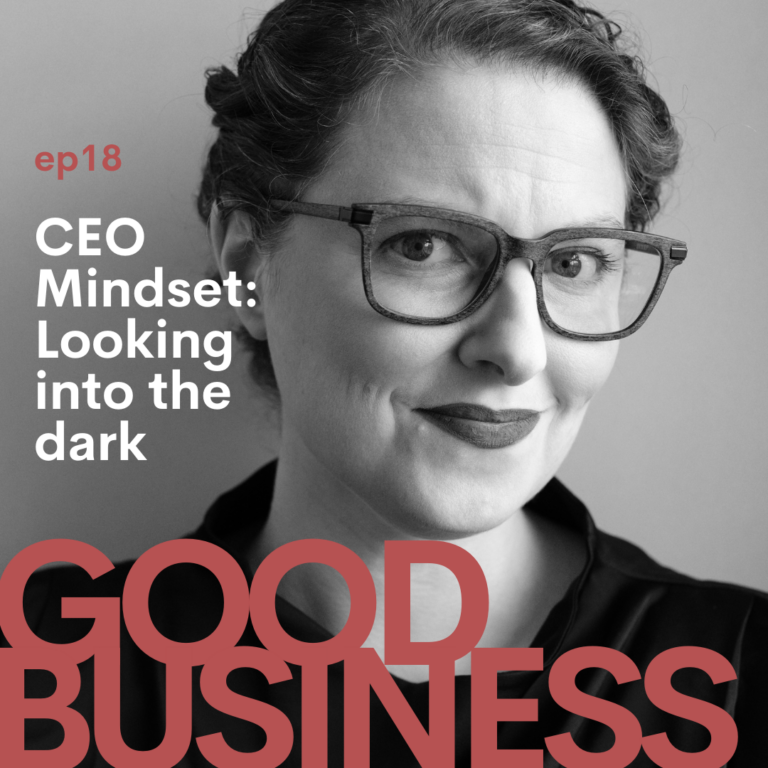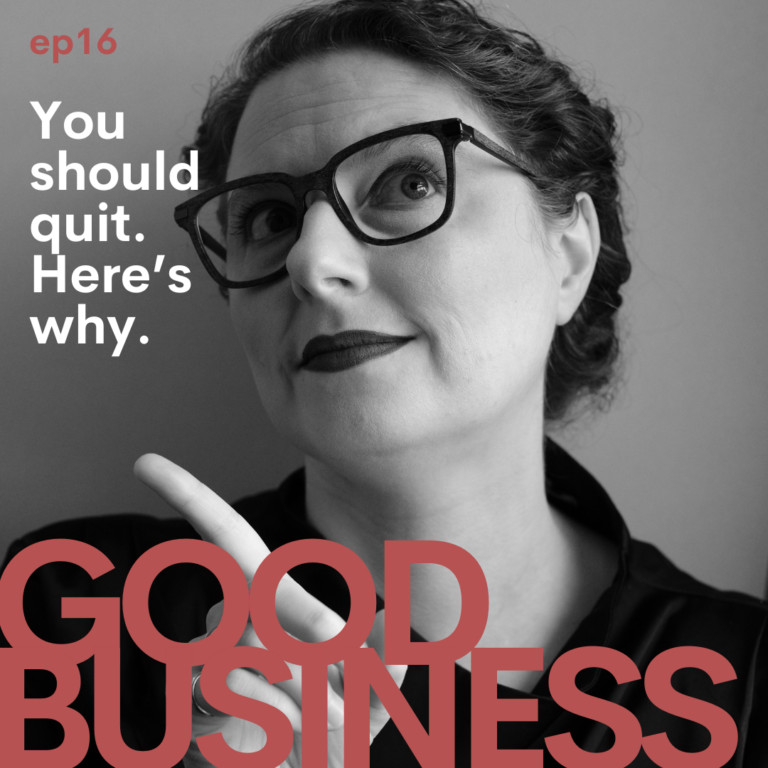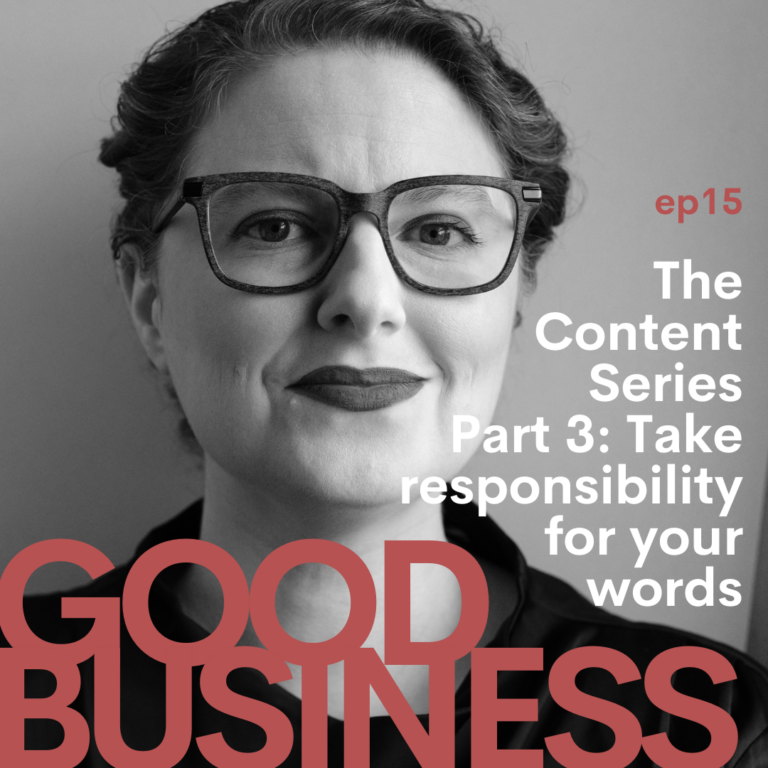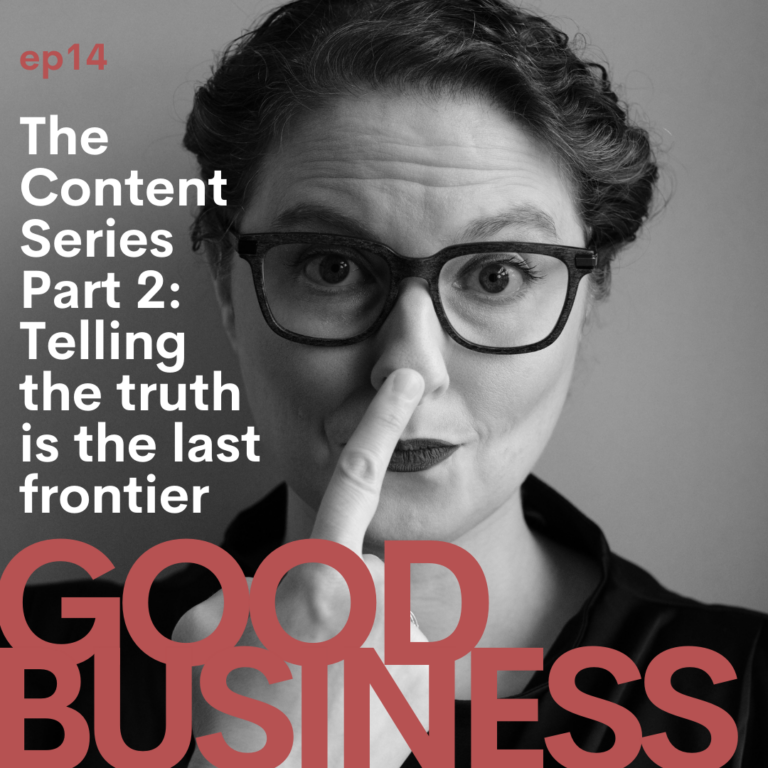Today’s topic is mistakes in business. Why? We all make them. Good business involves managing both good and bad situations effectively, with elegance, education, confidence. This skill is often overlooked. Let’s explore common mistakes, how people typically handle them (wrongly!), and better approaches. We’ll discuss power dynamics, the upside of handling mistakes well, practical tools and skills, and the bigger picture beyond client relationships.
[NOTE: The transcript below was generated with the help of AI. I do not advocate for the use of AI in copywriting in general, but see it as a useful tool for improving efficient editing of my own creative content. None of the actual content of the episode or the transcript was AI-generated. I just let the computer help me clean up the text so it can be more easily understood and consumed. ~i.]
Common Mistakes:
- Late deliveries, product errors, disappointed clients, failure to follow through (service providers).
- Wrong items, late arrivals, damaged goods, grumpy clients (product-based businesses).
- Everyone has faced these. Nobody escapes unscathed. My own experience: 15 years, 10 bad client experiences, 3 who think I’m the devil.
Why Over-Apologizing and Overcompensating Hurt:
- Clients expect it, making them more demanding.
- It changes the power dynamic, making you seem insecure and unprofessional.
- You lose control, potentially damaging the relationship.
Maintaining Power Dynamics:
- Over-apologizing and overcompensating can lead to:
- Client insecurity and aggression.
- Client micromanagement and fear.
- Breakdown of trust and relationship.
- You need to maintain power to deliver effectively and earn continued trust.
Taking Accountability:
- Apologize only for what you could have done better.
- If the mistake had impact, apologize for that (e.g., late delivery affecting client’s business).
- Don’t overexplain or blame yourself.
Addressing Mistakes:
- For minor issues or no impact: apologize, move on to next project stage.
- For high-impact issues:
- Apologize for the effect.
- Offer compensation if possible.
- Outline a plan to fix the issue and prevent recurrence.
- Move forward.
- If the client remains dissatisfied, offer to end the contract. Don’t tolerate abuse.
Surprising and Delighting Clients:
- Go beyond fixing the issue.
- Surprise them with a thoughtful gift unrelated to your work.
- This personalizes your relationship and builds goodwill.
- Example: Sending extra coffee for a broken bag.
Standing Firm Against Unreasonable Clients:
- If you’re right and the client is abusive, calmly stand your ground.
- Remind them of agreements and contracts.
- If necessary, end the contract. It’s not worth taking abuse.
- This applies to all businesses, though specific boundaries may vary.
Shifting the Conversation and Setting Expectations:
- Don’t dwell on mistakes. Remind the client it was a one-off and move forward.
- Don’t let the client control the conversation.
- Set clear expectations about communication and professionalism from the start.
Conclusion:
- Mistakes are inevitable, but handling them well can build strong client relationships.
- Be confident, graceful, and human.
- Treat clients as equals and set healthy boundaries.
- You can turn a bad situation into a positive one and create loyal clients.
More Episodes
Why trust-building beats list-building every day of the week | GB19
Today’s episode is all about why focusing on listbuilding as your primary focus in client acquisition is the very best way to feel like you’re banging your head against a wall. It’s also the very best way to make the people you MOST want to connect with feel like the only think that matters to you about THEM is their email address.
CEO Mindset: Looking into the dark | GB18
Today’s episode is on one area of what people call the ‘CEO Mindset’. First, we’ll dig in a little to what people THINK this means. Then, we’ll talk through what it ACTUALLY means. And finally, we’ll wrap up with some simple truths about how to do this better and why doing so is necessary to actually grow.
What to do when you just can’t get fired up about a great idea | GB17
Today’s episode is all about what to do when you’re working on something that you love but you can’t figure out why it just. isn’t. working. First, we’ll talk about what it feels like to love something but not be lit UP by it. Then we’ll talk about what to do about it and how to fix it. And finally, we’ll wrap up with some inspiring examples of how this works in action.
Are you a quitter? Because the world needs more quitters. | GB16
Quitting usually comes with shame. It feels like bad decisions and ignorance and can certainly be predicated on failure, but it is, and will always be a choice that is 100% within your control. You can’t be forced to quit. You...
The Content Series: Take responsibility for your words | GB15
Gone are the days of taking out an ad in the local newspaper to get foot traffic. When you start a business this day in age, you have to not only have something to SELL, you have to have something to SAY.
The Content Series: Why telling the truth is the only content strategy left | GB14
Today’s episode is all about the last frontier of content marketing: The bold notion that you can tell the whole truth and people will buy whatever you’re selling.






